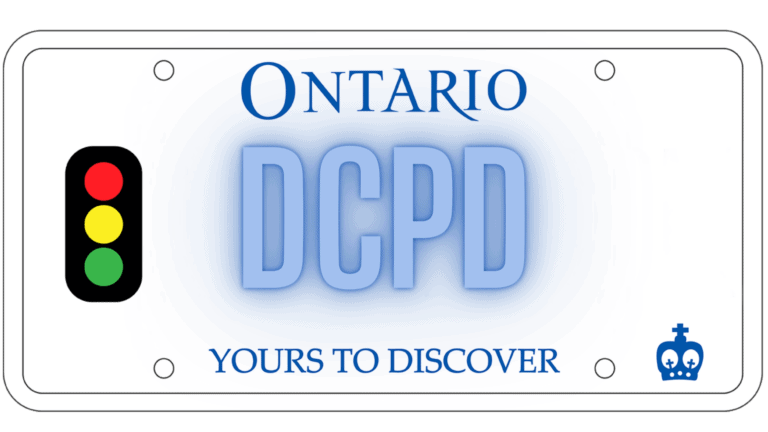DCPD Insurance – Ontario Direct Compensation Property Damage

What is Direct Compensation Property Damage Coverage in Ontario?
As of January 1st, 2024, Direct Compensation Property Damage is no longer mandatory auto insurance coverage in Ontario, Canada. Often referred to as DCPD, the auto insurance coverage is part of your overall auto policy, called the OAP 1, or the Ontario Automobile Policy.
Is DCPD insurance mandatory in Ontario?
No. As of January 1st,2024, DCPD auto insurance is no longer mandatory in Ontario. Ontario policyholders have the option to remove DCPD coverage with the OPCF 49 endorsement – Agreement Not to Recover for Loss or Damage from an Automobile.
What is the meaning of DCPD in Ontario?
DCPD, short for Direct Compensation Property Damage, means that you get compensation from an auto accident claim directly from your insurance company, not the wrongdoer’s insurance company. Insurance companies cannot sue other insurers for subrogated claims and are legally barred from doing so. Some exceptions apply, especially when it comes to injuries.
Why DCPD insurance in Ontario?
DCPD was implemented back in 1990 by the government to help claimants receive compensation for injuries or damages to their vehicles in a faster and more efficient way. Before DCPD, claimants and insurers relied on recovering or suing the At-Fault party or insurance company, to indemnify their customers. The process was slow, litigious and very costly which left many claimants waiting long periods to receive a settlement for damages and/or injuries. Direct Compensation Property Damage, or DCPD, promised to make the auto claims experience in Ontario, easier, cheaper and quicker.
Direct Compensation Property Damage Ontario – what does it cover?
DCPD covers three things:
Under section 6.2 of the Ontario Automobile Policy, direct compensation provides insurance coverage for the above-listed items, subject to depreciation. The coverage pays no more to repair or replace the vehicle or property than its actual cash value. Actual cash value is defined as repairing or replacing property of like kind and quality, less the depreciation.
Is there a deductible on Direct Compensation Property Damage Insurance Coverage?
Ontario has no standard deductible on DCPD or Direct Compensation Property Damage insurance coverage. However, you can choose to add a DCPD deductible to your auto policy if you want to, however, it’s rarely done. Having a DCPD deductible means you would need to pay your deductible regardless if you’re at fault or not for the accident.
So what’s the point of having a DCPD deductible?
The point of having a DCPD deductible is to lower your overall premium. Just like in any other type of insurance, the deductible is meant for you to share some cost with your insurer, thus reducing your rates.
Most drivers in Ontario know that when involved in a not-at-fault accident, the deductible gets waived. In actuality, it’s not a deductible that’s being waived but your DCPD coverage being applied. Why? Because not-at-fault accidents are always covered under DCPD coverage in Ontario, where deductibles are very rarely used.
How does DCPD work in Ontario?
DCPD, short for Direct Compensation Property Damage, is a mandatory auto insurance coverage in Ontario, Canada. Some people refer to DCPD as the “no-fault” portion of your insurance coverage under the OAP 1, or Ontario Automobile Policy.
DCPD coverage is meant to respond to not-at-fault auto accidents when the accident happens in Ontario, the accident is wholly or partially not your fault, and at least one other driver with a valid Ontario auto policy is involved. All these conditions need to be met before DCPD coverage can be applied to your claim. If your claim does get covered under DCPD then the insurance company will “waive” the deductible. The majority of the time policyholders do not have DCPD deductibles, therefore there is no deductible when DCPD coverage applies.
DCPD vs Collision
DCPD, or Direct Compensation Property Damage, covers damages to your vehicle, the loss of use of your vehicle and contents in your vehicle, under certain conditions.
Collision coverage (also called Upset) is optional insurance which covers damages to your vehicle caused by another vehicle, object, person, object or the surface of the road.
The main difference between DCPD and Collision insurance coverage is how they apply to an auto claim. DCPD applies only to not-at-fault losses, while Collision can be used for both not-at-fault and at-fault accidents, depending on the situation.
Another difference between the two coverages is the scope of indemnification. Collision covers damages to your vehicle only, while DCPD covers the damages to your vehicle, the loss of use of your vehicle and the contents in your vehicle.
How much does DCPD coverage pay?
The amount your auto insurance company will pay from the DCPD portion of your policy is determined by the degree of fault you or the driver is NOT at fault for the incident.
Example: if you get into a 50% not-at-fault accident in Ontario, and the damages to your vehicle cost $10,000 to repair. $5,000 would be paid under DCPD or Direct Compensation Property Damage, and the remainder covered under your collision coverage, subject to your deductible.
How does DCPD work with a rental vehicle?
If you’re driving a rental vehicle and have signed a rental contract, that places responsibility on you for the loss or damage to that rental vehicle, the insurance company responsible for covering the damages or loss depends on fault determination. If you are not responsible for the accident, the owner’s policy would be the first policy to respond to the loss, regardless of whether you’ve signed a rental contract or not! This is because the owner’s policy always responds first. to a loss and other policies are collateral. There are exceptions but that is beyond the scope of this article.
Scenarios where DCPD does not apply to a rental vehicle:
Conditions for Direct Compensation Property Damage Coverage
For Direct Compensation Property Damage (DCPD) coverage to apply, three conditions must be met regarding your auto accident:
However, there are some exceptions to these rules:
